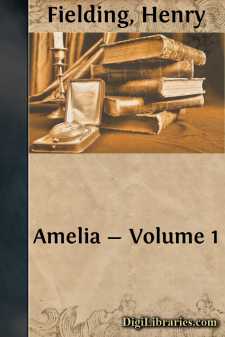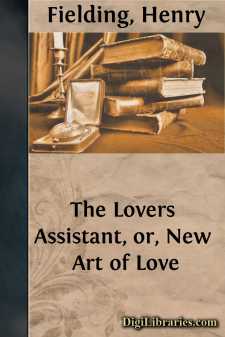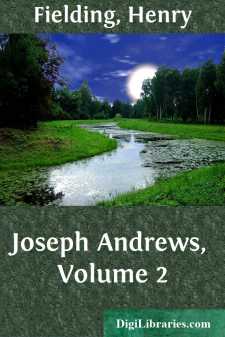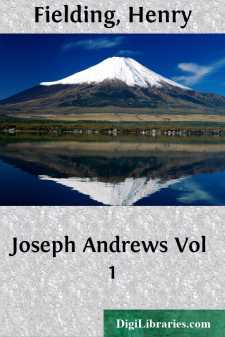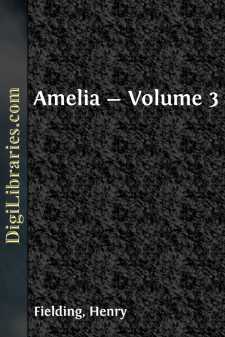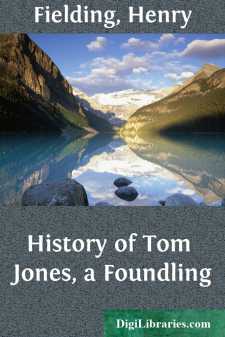Categories
- Antiques & Collectibles 13
- Architecture 36
- Art 48
- Bibles 22
- Biography & Autobiography 813
- Body, Mind & Spirit 142
- Business & Economics 28
- Children's Books 17
- Children's Fiction 14
- Computers 4
- Cooking 94
- Crafts & Hobbies 4
- Drama 346
- Education 46
- Family & Relationships 57
- Fiction 11829
- Games 19
- Gardening 17
- Health & Fitness 34
- History 1377
- House & Home 1
- Humor 147
- Juvenile Fiction 1873
- Juvenile Nonfiction 202
- Language Arts & Disciplines 88
- Law 16
- Literary Collections 686
- Literary Criticism 179
- Mathematics 13
- Medical 41
- Music 40
- Nature 179
- Non-Classifiable 1768
- Performing Arts 7
- Periodicals 1453
- Philosophy 64
- Photography 2
- Poetry 896
- Political Science 203
- Psychology 42
- Reference 154
- Religion 513
- Science 126
- Self-Help 84
- Social Science 81
- Sports & Recreation 34
- Study Aids 3
- Technology & Engineering 59
- Transportation 23
- Travel 463
- True Crime 29
Amelia - Volume 1
by: Henry Fielding
Description:
Excerpt
INTRODUCTION.
Fielding's third great novel has been the subject of much more discordant judgments than either of its forerunners. If we take the period since its appearance as covering four generations, we find the greatest authority in the earliest, Johnson, speaking of it with something more nearly approaching to enthusiasm than he allowed himself in reference to any other work of an author, to whom he was on the whole so unjust. The greatest man of letters of the next generation, Scott (whose attitude to Fielding was rather undecided, and seems to speak a mixture of intellectual admiration and moral dislike, or at least failure in sympathy), pronounces it "on the whole unpleasing," and regards it chiefly as a sequel to Tom Jones, showing what is to be expected of a libertine and thoughtless husband. But he too is enthusiastic over the heroine. Thackeray (whom in this special connection at any rate it is scarcely too much to call the greatest man of the third generation) overflows with predilection for it, but chiefly, as it would seem, because of his affection for Amelia herself, in which he practically agrees with Scott and Johnson. It would be invidious, and is noways needful, to single out any critic of our own time to place beside these great men. But it cannot be denied that the book, now as always, has incurred a considerable amount of hinted fault and hesitated dislike. Even Mr. Dobson notes some things in it as "unsatisfactory;" Mr. Gosse, with evident consciousness of temerity, ventures to ask whether it is not "a little dull." The very absence of episodes (on the ground that Miss Matthews's story is too closely connected with the main action to be fairly called an episode) and of introductory dissertations has been brought against it, as the presence of these things was brought against its forerunners.
I have sometimes wondered whether Amelia pays the penalty of an audacity which, a priori, its most unfavourable critics would indignantly deny to be a fault. It begins instead of ending with the marriage-bells; and though critic after critic of novels has exhausted his indignation and his satire over the folly of insisting on these as a finale, I doubt whether the demand is not too deeply rooted in the English, nay, in the human mind, to be safely neglected. The essence of all romance is a quest; the quest most perennially and universally interesting to man is the quest of a wife or a mistress; and the chapters dealing with what comes later have an inevitable flavour of tameness, and of the day after the feast. It is not common now-a-days to meet anybody who thinks Tommy Moore a great poet; one has to encounter either a suspicion of Philistinism or a suspicion of paradox if one tries to vindicate for him even his due place in the poetical hierarchy. Yet I suspect that no poet ever put into words a more universal criticism of life than he did when he wrote "I saw from the beach," with its moral of—
"Give me back, give me back, the wild freshness of morning—Her smiles and her tears are worth evening's best light."
If we discard this fallacy boldly, and ask ourselves whether Amelia is or is not as good as Joseph Andrews or Tom Jones, we shall I think be inclined to answer rather in the affirmative than in the negative....


